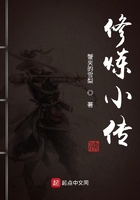When Charles Wesley at one time fell ill, and anticipated that death was approaching, he was asked upon what he rested his hope of eternal life. His answer was: "I have used my best endeavors to serve God." As the friend who had put the question seemed not to be fully satisfied with his answer, Wesley thought: "What! are not my endeavors a sufficient ground of hope?
Would he rob me of my endeavors? I have nothing else to trust to."--John Whitehead, Life of the Rev. Charles Wesley, page 102. Such was the dense darkness that had settled down on the church, hiding the atonement, robbing Christ of His glory, and turning the minds of men from their only hope of salvation--the blood of the crucified Redeemer.
Wesley and his associates were led to see that true religion is seated in the heart, and that God's law extends to the thoughts as well as to the words and actions. Convinced of the necessity of holiness of heart, as well as correctness of outward deportment, they set out in earnest upon a new life. By the most diligent and prayerful efforts they endeavored to subdue the evils of the natural heart. They lived a life of self-denial, charity, and humiliation, observing with great rigor and exactness every measure which they thought could be helpful to them in obtaining what they most desired--that holiness which could secure the favor of God. But they did not obtain the object which they sought. In vain were their endeavors to free themselves from the condemnation of sin or to break its power. It was the same struggle which Luther had experienced in his cell at Erfurt. It was the same question which had tortured his soul--"How should man be just before God?" Job. 9:2.
The fires of divine truth, well-nigh extinguished upon the altars of Protestantism, were to be rekindled from the ancient torch handed down the ages by the Bohemian Christians. After the Reformation, Protestantism in Bohemia had been trampled out by the hordes of Rome. All who refused to renounce the truth were forced to flee. Some of these, finding refuge in Saxony, there maintained the ancient faith. It was from the descendants of these Christians that light came to Wesley and his associates.
John and Charles Wesley, after being ordained to the ministry, were sent on a mission to America. On board the ship was a company of Moravians. Violent storms were encountered on the passage, and John Wesley, brought face to face with death, felt that he had not the assurance of peace with God. The Germans, on the contrary, manifested a calmness and trust to which he was a stranger.
"I had long before," he says, "observed the great seriousness of their behavior. Of their humility they had given a continual proof, by performing those servile offices for the other passengers which none of the English would undertake; for which they desired and would receive no pay, saying it was good for their proud hearts, and their loving Saviour had done more for them. And every day had given them occasion of showing a meekness which no injury could move. If they were pushed, struck, or thrown about, they rose again and went away; but no complaint was found in their mouth. There was now an opportunity of trying whether they were delivered from the spirit of fear, as well as from that of pride, anger, and revenge. In the midst of the psalm wherewith their service began, the sea broke over, split the mainsail in pieces, covered the ship, and poured in between the decks as if the great deep had already swallowed us up. A terrible screaming began among the English. The Germans calmly sang on. I asked one of them afterwards, 'Were you not afraid?' He answered, 'I thank God, no.' I asked, 'But were not your women and children afraid?' He replied mildly, 'No; our women and children are not afraid to die.'"--Whitehead, Life of the Rev. John Wesley, page 10.
Upon arriving in Savannah, Wesley for a short time abode with the Moravians, and was deeply impressed with their Christian deportment. Of one of their religious services, in striking contrast to the lifeless formalism of the Church of England, he wrote: "The great simplicity as well as solemnity of the whole almost made me forget the seventeen hundred years between, and imagine myself in one of those assemblies where form and state were not; but Paul, the tentmaker, or Peter, the fisherman, presided; yet with the demonstration of the Spirit and of power."--Ibid., pages 11, 12.
On his return to England, Wesley, under the instruction of a Moravian preacher, arrived at a clearer understanding of Bible faith. He was convinced that he must renounce all dependence upon his own works for salvation and must trust wholly to "the Lamb of God, which taketh away the sin of the world." At a meeting of the Moravian society in London a statement was read from Luther, describing the change which the Spirit of God works in the heart of the believer. As Wesley listened, faith was kindled in his soul. "I felt my heart strangely warmed," he says. "I felt I did trust in Christ, Christ alone, for salvation: and an assurance was given me, that He had taken away my sins, even mine, and saved me from the law of sin and death."-- Ibid., page 52.
Through long years of wearisome and comfortless striving-- years of rigorous self-denial, of reproach and humiliation-- Wesley had steadfastly adhered to his one purpose of seeking God. Now he had found Him; and he found that the grace which he had toiled to win by prayers and fasts, by almsdeeds and self-abnegation, was a gift, "without money and without price."Once established in the faith of Christ, his whole soul burned with the desire to spread everywhere a knowledge of the glorious gospel of God's free grace. "I look upon all the world as my parish," he said; "in whatever part of it I am, I judge it meet, right, and my bounden duty, to declare unto all that are willing to hear, the glad tidings of salvation."-- Ibid., page 74.















